Lava Kusa is a film of genre Fantasy directed by C. Pullaiah with Anjali Devi
Lava Kusa (1963)
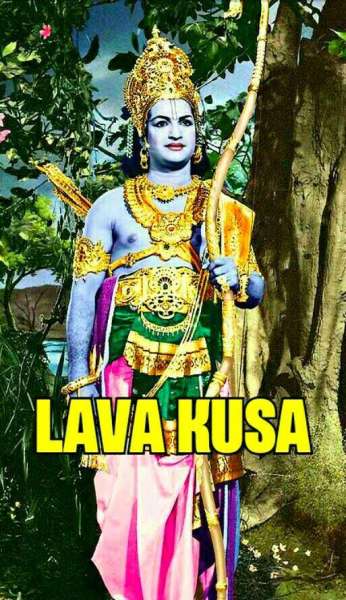
If you like this film, let us know!
Genres Fantasy
Rating81%










For the sons of Rama, see Lava and Kusha
Lava Kusa (also spelled as Lava Kusha) is a 1963 Telugu and Tamil mythological film directed by C. S. Rao and his son Chittajallu Pullayya. The film's script was written by Samudrala Raghavacharya. The film was produced by Shankar Reddy under Lalita Sivajyothi films. The film is bilingual, shot in both Telugu and Tamil with the same title, but with slight differences in the cast. The film was a remake of 1934 film of same name which was also directed by C. Pullaiah. The story is an adaptation of the Uttara Kanda from Ramayana. It revolves around the roles of Lava and Kusa, sons of Rama (N. T. R.) and Seetha (Anjali Devi). The Telugu version stars Kanta Rao, Shoban Babu, S. Varalakshmi, Kaikala Satyanarayana in supporting roles, replaced in that order by M. R. Radha and Manorama in the Tamil counterpart.
Production began in 1958 but was stopped due to financial constraints. When it restarted, C. Pullaiah's health was deteriorating, so his son C. S. Rao took over. The soundtrack features 27 songs, with the musical score primarily composed by Ghantasala and KV Mahadevan, and the lyrics by Vempati Sadasiva and Samudrala Raghavacharya (Telugu) and Maruthakasi (Tamil). The film has won the National Film Award for Best Feature Film in Telugu for that year. It was also dubbed in Kannada, and later in Hindi in 1974.
Synopsis
This movie is based on Uttara Kanda which is the later part of Ramayana written by Valmiki Maharshi. It depicts the lives of Lava and Kusa, the sons of Rama and Sita. The story depicts Sri Rama Pattabhishekam and about the brief period of Rama Rajyam, Rama sending Seeta exile on hearing the accusations of a washerman, Birth of Lava and Kusha, their visit to Ayodhya, Ashwamedha Yagna and conflict between Rama and his sons and Pattabhishekam of Lava and Kusha and Rama finally ending his Avatar.Actors
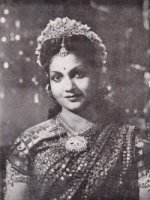
Anjali Devi
(Goddess Sita)

Suryakantam
(Valmiki disciple's wife)

Tadepalli Lakshmi Kanta Rao
(Laxmana)

Shobhan Babu
(Shatrughna)

Chittor V. Nagaiah
Comments
Leave comment :
Suggestions of similar film to Lava Kusa
There are 217 films with the same actors, 18 films with the same director, 6134 with the same cinematographic genres, 3589 films with the same themes (including 106 films with the same 2 themes than Lava Kusa), to have finally 70 suggestions of similar films.If you liked Lava Kusa, you will probably like those similar films :

Savitri (1933)
, 2h5Directed by C. Pullaiah
Genres Drama, Fantasy
Themes Films based on mythology, Films about religion
Actors Surabhi Kamalabai
There was a Prince in Hindustan named Ashwapati, ruling over the kingdom of Madra. He married Queen Malavi. Even after a longtime they did not have a child. He invoked Savitri, his favorite deity and by the grace of god, they had a daughter; named as Savitri. She grew into a lovely maiden and was always playing in the palace and in the forest with her companion Vasantika. She often used to relate her dreams to her companion and once she portrayed in words the form and beauty of her beloved.
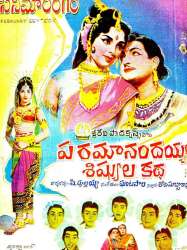
Directed by C. Pullaiah
Genres Comedy, Fantasy, Action, Historical, Romance
Actors K. R. Vijaya, Chittor V. Nagaiah, Padmanabham, L. Vijayalakshmi, Allu Rama Lingiah, Raja Babu
Rating77%





The plot is based on the story of Disciples (Sishya) of Paramanandayya, seven saints in number. They are actually the disciples of Aruna Keerti Mahamuni. Chitralekha (K.R. Vijaya) dances in the court of Lord Siva (Sobhan Babu). He gives her a Rudraksha mala to wear during the visits. Later, she visits the beautiful Earth with her companions and enjoys bathing in a pool. She finds these Sishiyas keenly looking at her and curses them to become idiots. After knowing the facts from Guruji and realizing her mistake, she pronounces the vimukti (free from curse) at the time of her marriage. The Guru, Aruna Keerti, in return curses Chitralekha that she will lose her celestial status if she comes into contact with a human.

Desamante Manushuloi (1970)
Directed by C. S. Rao
Actors Shobhan Babu, Samarla Venkata Ranga Rao, Anjali Devi
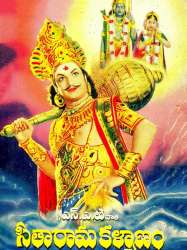
Seetha Rama Kalyanam (1961)
Directed by N. Trivikrama Rao
Genres Drama, Musical
Themes Films based on mythology, Films about religion
Actors Haranath, Tadepalli Lakshmi Kanta Rao, Chittor V. Nagaiah, Chhaya Devi, B. Saroja Devi, Gummadi Venkateswara Rao
Rating79%





The story primary concentrates on Ravana, a key character in Ramayana. It begins with the birth of Lord Rama and ends with his Marriage with Seetha.

Kurukshetram (1977)
, 2h48Directed by Kamalakara Kameswara Rao
Themes Films based on mythology, Films about religion
Actors Krishnam Raju, Krishna, Shobhan Babu, Jamuna, Kaikala Satyanarayana, Anjali Devi

Sampoorna Ramayanam (1972)
Directed by Bapu
Genres Drama, Historical
Themes Films based on mythology, Films about religion
Actors Shobhan Babu, Chandrakala, Gummadi Venkateswara Rao, Chittor V. Nagaiah, Kaikala Satyanarayana, Samarla Venkata Ranga Rao
Rating82%





The story is the complete Ramayana from the birth of Lord Rama to his Pattabhisheka after completing his exile.
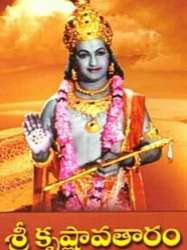
Sri Krishnavataram (1967)
, 3h31Directed by Kamalakara Kameswara Rao
Genres Drama, Fantasy, Historical, Musical
Themes Films based on mythology, Films about religion
Actors Devika, Krishnam Raju, Shobhan Babu, Dr. Prabhakar Reddy, Kaikala Satyanarayana, Chittor V. Nagaiah
Rating70%






Panduranga Mahatyam (1957)
Directed by Kamalakara Kameswara Rao
Genres Drama, Historical, Musical
Themes Films based on mythology, Films about religion
Actors Chittor V. Nagaiah, Anjali Devi, Rushyendramani, Padmanabham, B. Saroja Devi, Peketi Sivaram
Rating77%





Pundarikudu (N.T. Rama Rao) is from a pious Brahmin family who is not interested in the worship of God and irreligious, a complete rebel who is asked to mend his ways by his parents (Nagaiah and Rushyendramani). He steals their gold for a prostitute Kalavathy (B. Saroja Devi). His mother takes the blame, and they part ways. Kalavathy takes all his wealth and throws him out.

Yamagola (1977)
Directed by Rama Rao Tatineni
Genres Comedy, Fantasy, Romance
Themes Films about religion
Actors Kaikala Satyanarayana, Tadepalli Lakshmi Kanta Rao, Nirmalamma, Dr. Prabhakar Reddy, Suryakantam, Jayamalini
Rating66%





Satyam (N.T. Rama Rao) is a youth leader and Panchayati Board President. He interferes with the ex-President of the board, Rudrayya (Rao Gopala Rao) from executing his corrupt practices. Satyam and Rudrayya's daughter, Savithri (Jayapradha) are in love and plan to get married. So Rudrayya gets Satyam killed with the help of a professional killer (Prabhakar Reddy). Satyam immediately goes to heaven. He angers the King of Heaven, Indra (Kanta Rao) while he enjoys the dance by Rambha, Urvasi and Menaka. He sends him straight to hell headed by Yama (Satyanarayana) and ably assisted by Chitragupta (Allu Ramalingaiah). In hell, he influences the soldiers of death, Yama's army using communist theories and rights of labor, and turns them against their leader-Yama, and Hell shuts down. Yama sends him back to Earth. Yama and Chitragupta visits Earth on a holiday trip and experiences the funny aspects of Humans. Satyam changes his name and teaches Rudrayya a lesson.

Daana Veera Soora Karna (1977)
, 3h47Genres Drama, Fantasy, Historical, Musical
Themes Films based on mythology, Films about religion
Actors Nandamuri Balakrishna, Nandamuri Harikrishna, Sharada, Chalapathi Rao, Dhulipala, Kaikala Satyanarayana
Rating88%





The story is based on life of Karna from Mahabharata
 Connection
Connection